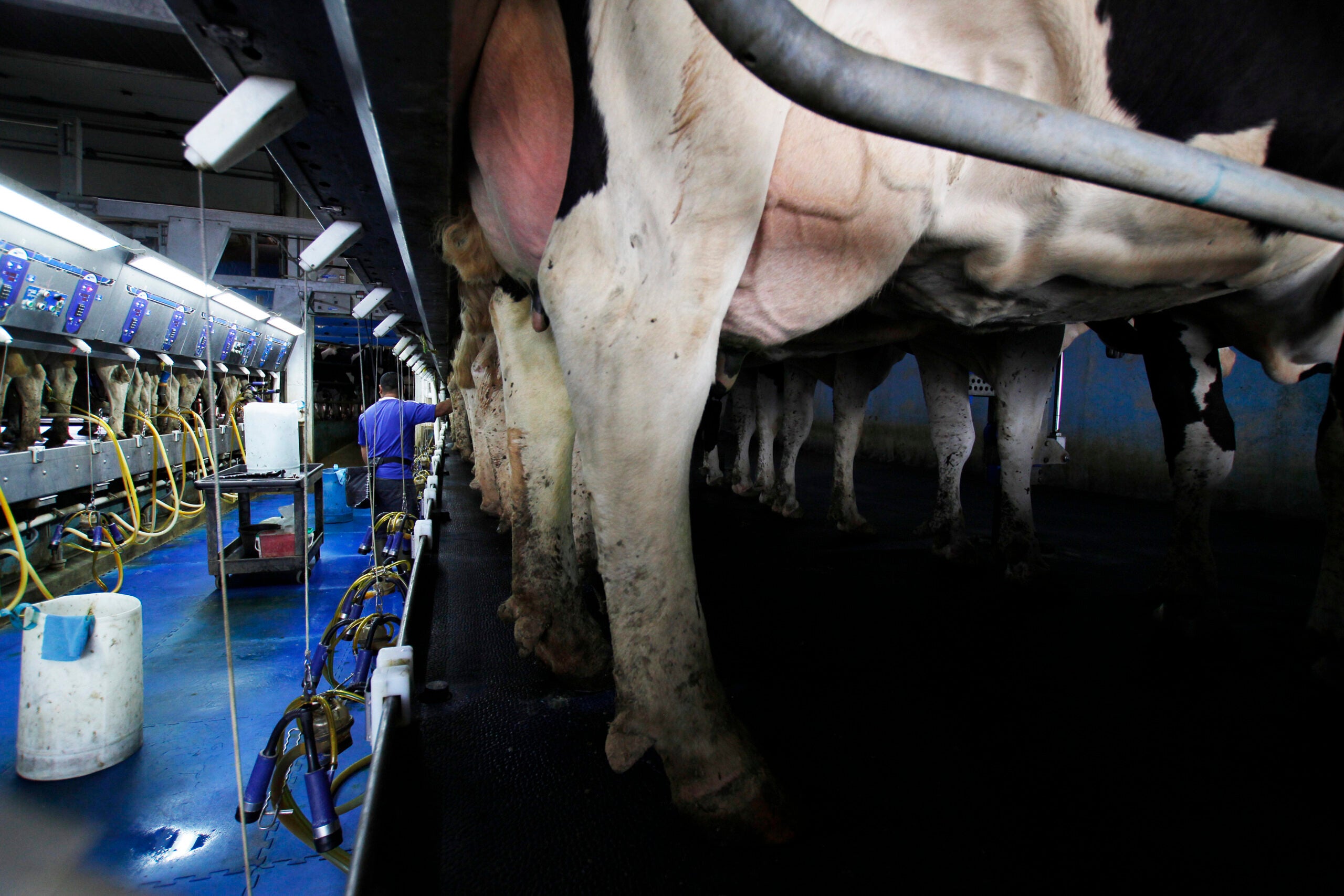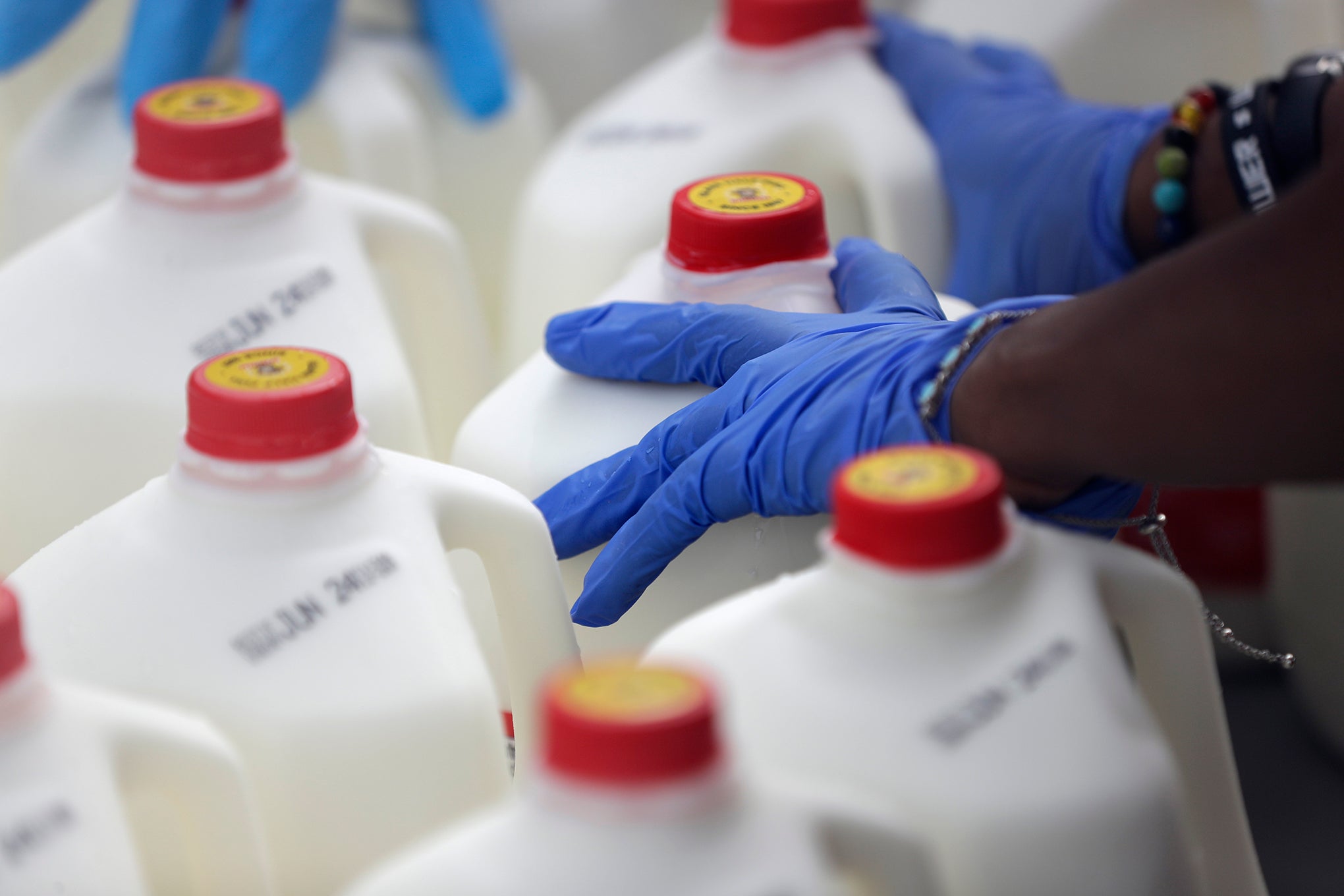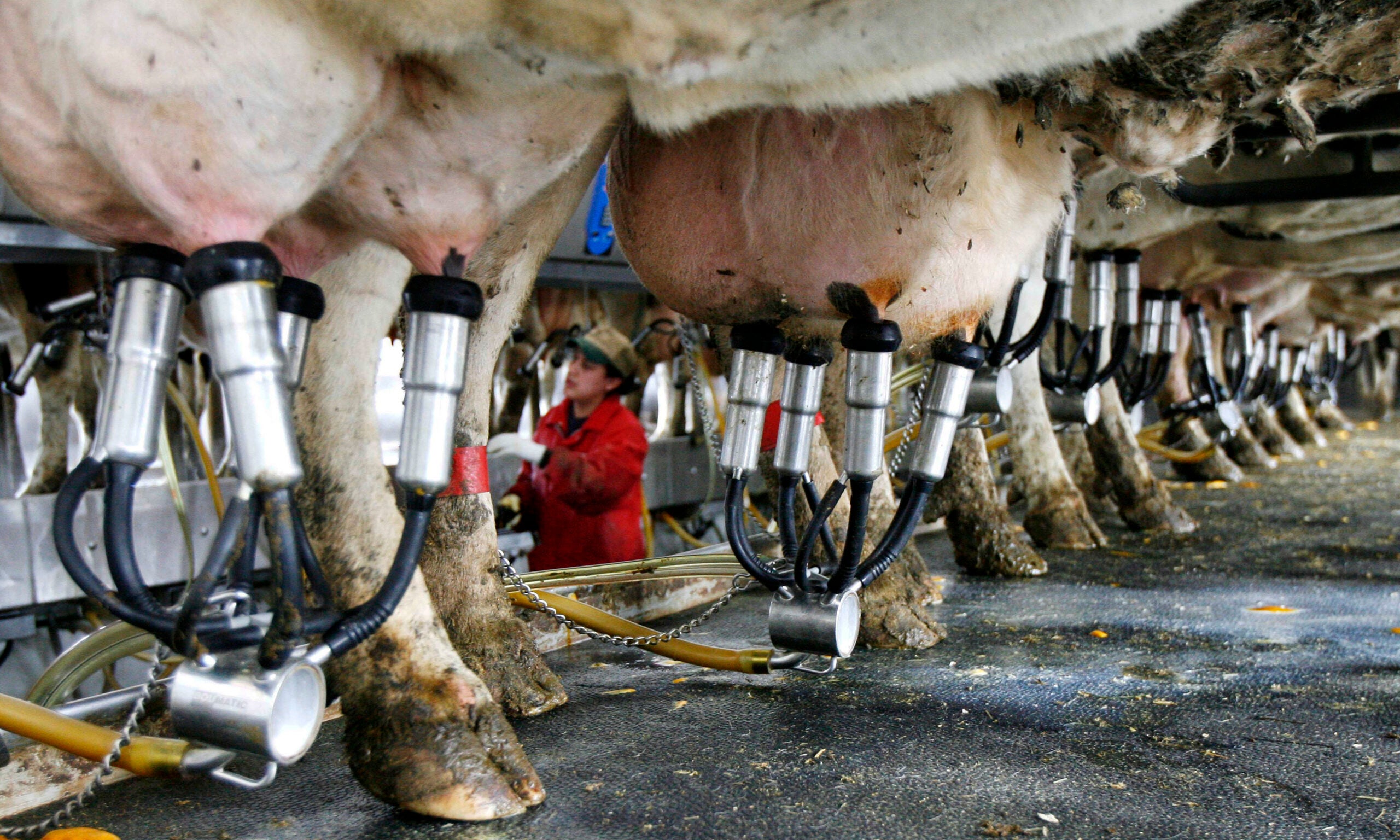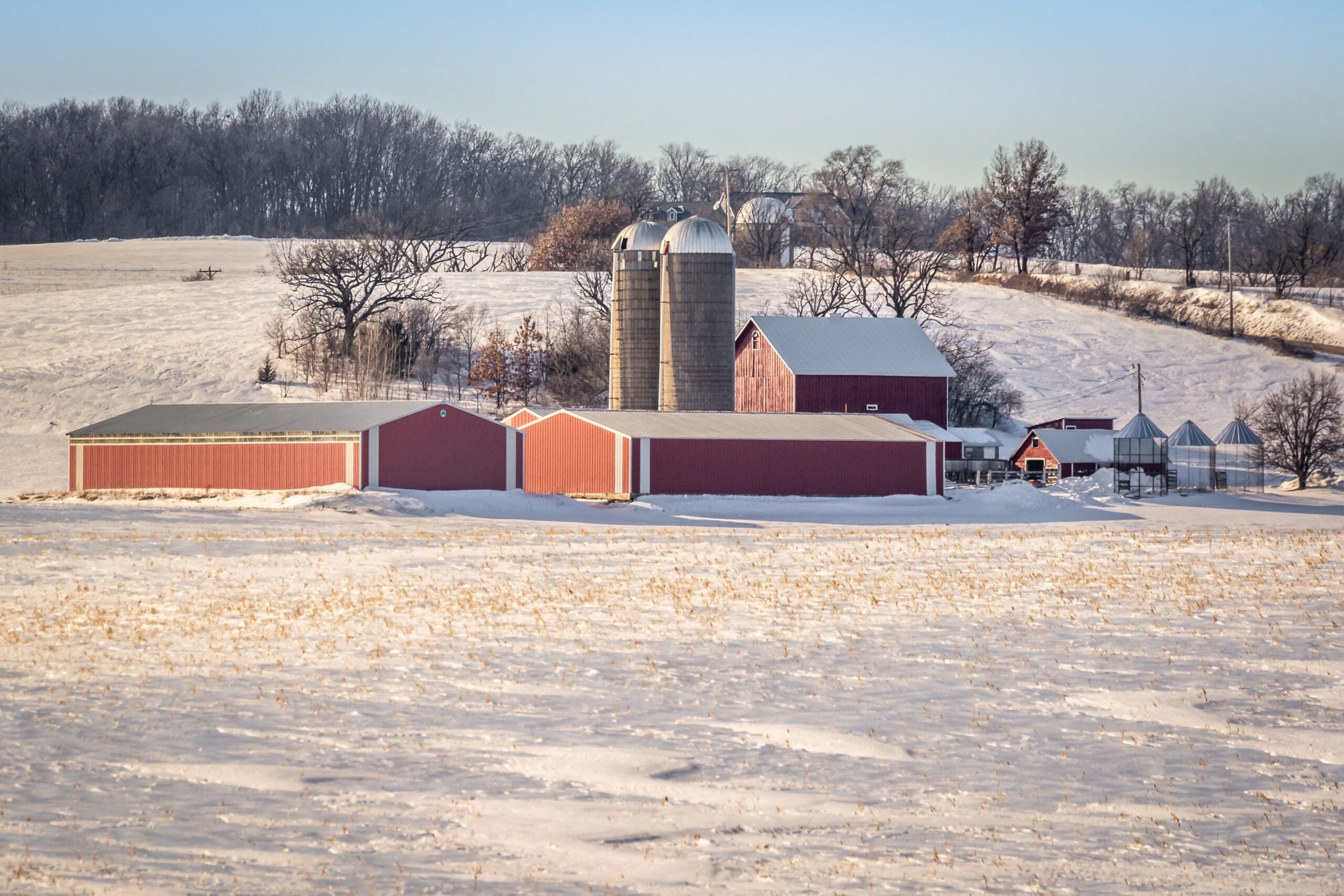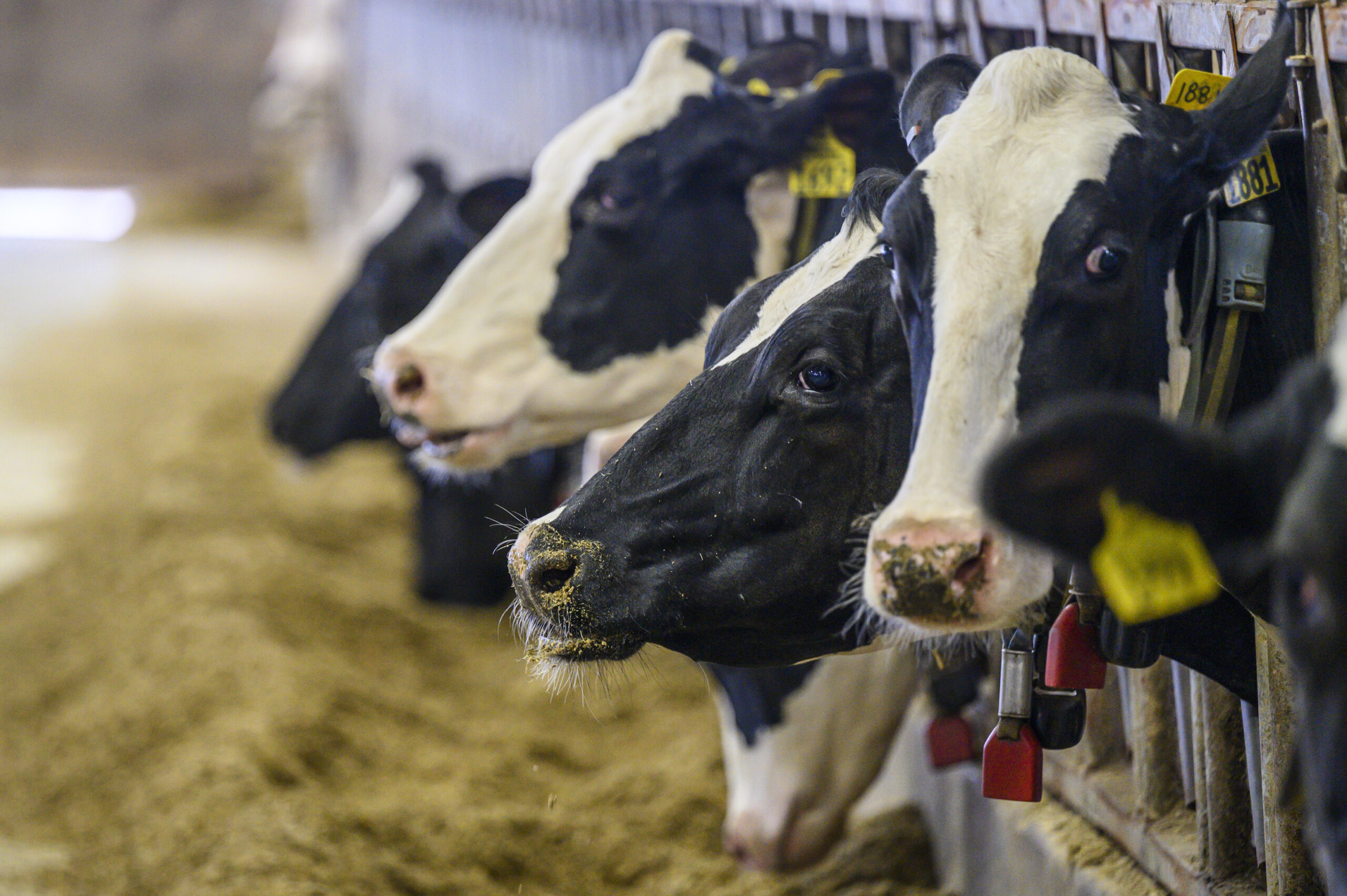Increased trucking costs for Wisconsin dairy farmers is the latest symptom of an oversupply of milk.
The Upper Midwest Federal Milk Marketing Order recently released a report on milk hauling charges paid by farmers in 2018.
The report found the average charge per hundredweight, or 100 pounds of milk, in Wisconsin was $0.24, a 40 percent increase from 2017.
Stay informed on the latest news
Sign up for WPR’s email newsletter.
Corey Freije is an agricultural economist who compiles the report for the Upper Midwest Order. He said hauling charges typically increase by 1 or 2 cents every year, so last year’s 7 cent jump is unusual.
“That is partially a result of an increase in the diesel fuel costs,” Freije said. “But it also seems to be an indication that the dairy farmers, with the supply that’s out there, have kind of lost their market power.”
With plenty of milk to go around, Freije said dairy processors don’t have to subsidize the cost of hauling milk as a way to attract farmers.
“The handler, particularly a co-op, would subsidize that hauling (charge),” Freije said. “I’ve heard over time that the handlers and some of the co-ops want to reflect more fully the cost of the hauling to those deductions for dairy farmers.”
Mark Stephenson is director of dairy policy analysis at the University of Wisconsin-Madison. He said the 7 cent jump in the average hauling charges likely had a big impact on farms, especially given the continued low price for milk.
“You can’t influence price very much,” Stephenson said. “What you really can do is make sure that you’re a low-cost producer and so farmers, dairy farmers, corn growers, spend a lot of time trying to be sure that they are shaving costs. And for them, costs get down to pennies per hundredweight.”
As consolidation continues within the dairy industry, Stephenson said farmers will likely have to take on more production costs like trucking to stay competitive.
Wisconsin Public Radio, © Copyright 2025, Board of Regents of the University of Wisconsin System and Wisconsin Educational Communications Board.
